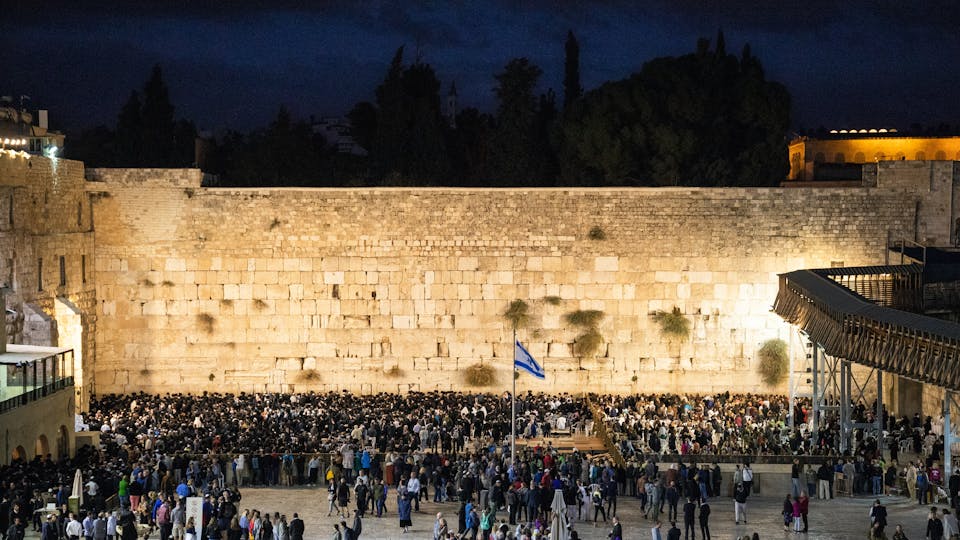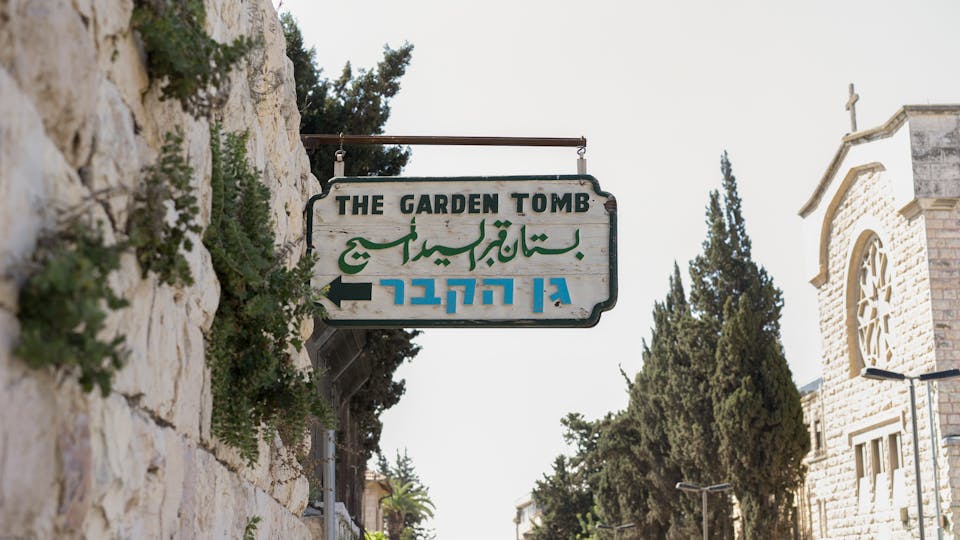Why Every Travel Agent Should Add Israel To Their Destinations Today

Why Every Travel Agent Should Add Israel To Their Destinations Today
When the tourism sector starts to recover in the post-COVID era, travel agents will need to develop innovative tactics to bolster bookings and revive dwindling commissions. One profitable strategy is to incorporate up-and-coming locales, offering exotic new experiences to excite the anxious yet travel-deprived public.
While time-old favorites like Thailand will continue to be popular, savvy travel agents must seek out new destinations to enhance their repertoire—destinations with explosive growth and awash with spectacular scenery, captivating culture, and sacred religious sites.
Israel is one such destination, and this lucrative market is ready to bounce back rapidly once international borders open up.
Here’s why every travel agent should include this fascinating country into their product range well before there’s a COVID-19 vaccine.
1. Unprecedented Growth
Few countries on earth have had such a meteoric rise in the tourism sector as Israel. A record-breaking 4.5 million international travelers visited in 2019, equating to a 55% increase on 2016 when 2.8 million people landed on its shores. What’s more, the uptick in new arrivals has been steady rather than fluctuating, with at least 10% growth year on year.
Obviously, 2020 has been unkind to the Israeli travel industry, as it has worldwide. But once global demand starts to go up again, this tiny Middle Eastern nation is poised to pick up right where it left off.
Some of the country’s newfound success is thanks to the Israeli Ministry of Tourism. Although people of faith have long been the cornerstone of Israel’s immense tourism growth, the Ministry recently altered its global marketing to include other attractions. From the pulsating energy of cosmopolitan Tel Aviv to outdoor adventures amid jaw-dropping natural scenery, Israel is now catching the eye of travelers outside the Evangelical set.
Unsurprisingly, the aviation industry noticed a sharp upward trend and put on new services to meet demand. Air traffic grew by 7.5% in 2019 (well above the global average), prompting the major local carriers—El Al, Israir, and Arkia—to expand destinations domestically and abroad. Meanwhile, the US$474 million Eilat-Ramon Airport opened its doors in 2019 to service low-cost carriers from Europe and take the pressure of Tel Aviv’s burgeoning Ben Gurion Airport.
The hotel industry tells a similar story. In 2018, Israel opened 3,289 rooms to welcome new guests, a 49% increase from the year before. Many were in high-end luxury offerings such as the Setai Tel Aviv, which attract enormous commissions for travel agents in the know.

2. The Perfect Middle Eastern Hub
Although there’s an abundance of exciting experiences in Israel, many travelers use the nation as a jumping-off point to explore the Middle East. With a strategic position in its geographical center and a growing network of international air links, Israel is ready to establish itself as a major regional hub.
In the past, politics made the prospect unthinkable. Flights to neighboring countries were few and far between; some nations even refused to receive tourists with an Israeli stamp in their passport.
But things have progressed rapidly in recent years thanks to a slew of favorable peace treaties with nearby nations. Egypt and Jordan were the first to normalize relations with Israel back in 1979 and 1994, respectively. And now, in 2020, a historic peace treaty with both the UAE and Bahrain added two more countries to that list, while other Arabic leaders have been tipped to follow suit.
It didn’t take long for the airline industry to capitalize on these warming relations: the inaugural commercial flight from Israel to the UAE touched down in Abu Dhabi this year—traveling through Saudi airspace, no less, in another historic first.
If political relations continue to improve as predicted, Israel is set to establish itself as a major tourism hub. In other words, it won’t be long before your booking holidays with a stopover in Tel Aviv instead of Dubai.
3. Historical Importance And Sacred Religious Sites
Although modern Israel was founded as recently as 1948, the nation’s historical importance is impossible to understate.
Also known as the ‘Land of the Bible,’ the country is home to several of the most sacred sites in Christianity, Judaism, and Islam. Pilgrims from all three monotheistic religions are compelled to visit these holy places en masse, creating a consistent demand for travel that doesn’t fluctuate with the seasons or global trends.
The top Israeli destination for people of faith is Jerusalem, which lures scores of devotees to explore millennia-old churches, temples, and mosques.
Evangelicals are one of the most common denominations to visit Israel, flocking in droves to places like Mount of Olives to experience biblical sites first hand. Catholics, come to follow in the footsteps of our savior at the Stations of the Cross. The 14-step series concludes at the Church of the Holy Sepulcher, the most sacred site in Christianity and the scene of the crucifixion of Christ. Other must-visit sites are popular with other denominations—the Sea of Galilee, for example, is a sacred Orthodox site.
Muslims, on the other hand, make a beeline for Temple Mount to see the Dome of the Rock, widely considered the most spellbinding Islamic structure on earth. And for Jewish travelers, nothing beats paying homage at the Western Wall.
Sacred monuments aside, Israel is ram-packed full of fascinating archeological sites—Romans, Brits, and Turks once ruled the region, after all. The coastal city of Caesarea, for example, is home to some of the best-preserved Roman ruins in the world, making it a sure-fire hit for any history buff.
Humanity has always had a deep fascination with history and religion. These two distinct passions form the pillars of the Israeli tourism industry, and there’s unlikely to be any change in the post-COVID world.

4. Fascinating People & Culture
One of the primary drivers of Israel’s tourism success is its people, a warm and friendly conglomeration of varying ethnicities and faiths. Over the last hundred years or so—since well before statehood was achieved—the Jews have been returning to the Promised Land in droves, bringing their varied customs and culture with them. Today, the country boasts a captivating blend of European, African, and Arabic influences to form a singular Israeli identity that captivates the visitor and adds an exotic element to every vacation.
Travelers can witness such diversity firsthand through authentic Israeli celebrations that amalgamate the best elements of East and West. Lavish festivities occur throughout the year to mark significant historical and religious events, many of which are on full public display for curious tourists to witness.
Another major drawcard is Israel’s exotic cuisine, an eclectic mix of Arabic and Western traditions. Local favorites like falafel, hummus, tahini, shakshuka, and baba ganoush are widely available in restaurants and street stalls, creating a culinary journey that’s destined to delight.
The leading travel companies in Israel incorporate elements of the culture and cuisine into their itineraries, allowing visitors to sample the very best of Israel in a natural and authentic way.
5. Small & Easy To Explore
Israel occupies a mere 22,145 km², about the same as New Jersey. Even at its longest point, only 418 km separate the northern and southern borders, making it a modest six-hour car trip from end to end. Couple that with first-world infrastructure—think modern railways and world-class highways—and you’ve got a bite-sized country that’s a pleasure to traverse.
For the time-poor travel agent, this minute landmass makes the logistics of an Israeli holiday a breeze. Forget about organizing an array of complex domestic air transfers when a quick shuttle service will whizz clients around at record speed.
Israel’s small stature also lets you pack more activities into a short timeframe—travel in Israel means clients get to enjoy an action-packed holiday while travel agents can optimize commissions. Plus, as neighboring nations are never more than a few hours’ drive away (even less by air), combining an Israeli adventure with an extended Middle Eastern escape is an all-too-easy affair.

6. Diverse Natural Landscapes Abound
Travelers unacquainted with the country tend to imagine Israel as a vast, barren expanse with scarcely a hint of greenery in sight. And while the nation does boast its fair share of dramatic desert scenery—the Negev Desert springs to mind—Israel is awash with diverse natural landscapes to explore.
Case in point: the majestic Mount Hermon tempts climbers to summit its snow-capped peaks, while the raw power of the Saar Waterfall cuts through rugged and verdant terrain. Travelers can marvel at the crystal clear streams in the Golan Heights or hike uphill through thickly wooded pines at the Jerusalem Forest.
Rafting on the River Jordan has become a hit in recent years, while snorkeling in the marine life-rich waters of the Red Sea has always been a must. For the lushest landscapes in Israel, it’s hard to go past the Hermon Stream Nature Reserve, whose leafy green forests feel more European than Middle Eastern.
To make the most of its diverse natural landscapes, local tour operators have developed various adventure activities. Biking, sailing, rafting, diving, and bungee jumping tempt daring travelers, while bird watching, hiking, and wildlife spotting offer a subdued way to enjoy the great outdoors.
For travel agents with clients who seek spectacular natural scenery combined with ancient history and sacred religious sites, selling tours to Israel is a profitable endeavor.
7. A Safe & Welcoming Environment
A preconception among travel agents—and travelers, too—is that Israel is too dangerous to visit. Years of negative press has tainted the country as a lawless, war-torn place where bombs could fall out of the sky at any given minute.
In reality, these preconceptions couldn’t be further from the truth. Israelis live their day to day lives without fear of harm, and there’s no rational reason tourists should avoid Israel for safety’s sake. As a helpful comparison to qualm jittery nerves, more people died from terrorist acts in the United States than Israel in 2019.
In recent years, however, travelers worldwide have started to realize Israel is safe, as shown by the vast influx of visitors right up until the onset of the pandemic. Atrocities committed in France, the UK, and New Zealand, for example, highlight how terrorism can occur anywhere in the world. What’s more, a period of relative calm in Israel—combined with the new peace treaties with Bahrain and the UAE—has helped strengthen the nation’s image among the traveling public at large.
In short, travel agents likely won’t have to convince their clients that Israel is safe—they’ll probably already know this themselves.
And let’s not forget, Israel has been dealing with hostilities for quite some time and has developed some of the world’s most advanced defensive capabilities in response. Of course trouble can occur in Israel as in any country in the world, but all in all, Israel is an extremely safe place to visit for tourists.
8. Technology & Innovation
Despite being steeped in tradition and awash with ancient archeological sites, Israel is a remarkably modern country. Science and technology are enormous industries that employ thousands of staff throughout the country—Bloomberg ranked Israel 5th on its global innovation index. Most of the tech sector operates within Tel Aviv, a cosmopolitan and ultra-modern metropolis that reminds many visitors of New York.
A passion for being at the forefront of innovation is nothing new as Israelis have been avid inventors since ancient times.
For the traveler, this means modern conveniences are available at every turn. And for the travel agent, things run much more smoothly than elsewhere in Asia and the Middle East. Highly efficient tourist industry workers ensure everything is as it should be; delays are uncommon, and issues with local providers are almost unheard of.

Book Israel through A Company You Can Trust
Sar-El Tours has been organizing unforgettable travel experiences for people of faith in Israel for 27 years and hosts a number of non-religious tours as well. We work side by side with the Ministry of Tourism and the Israeli Union of Hotels, using our very own fleet of buses to ensure every booking goes off without a hitch.
On a trip with Sar-El Tours, clients enjoy a fantastic journey they’ll recommend to their friends while agents receive generous commissions and a hassle-free booking experience—a true win-win.
Fill out the form below and add Israel to your preferred destination list today.